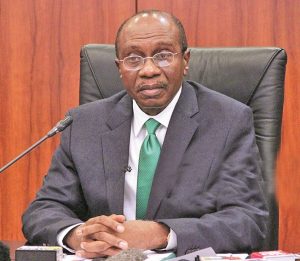Nigeria has recorded $10.75bn foreign exchange inflow in two months, figures obtained from the Central Bank of Nigeria have revealed.
The CBN revealed in its monthly economic report on ‘Foreign exchange flows through the economy’.
The report stated, “The economy recorded higher net foreign exchange inflow, driven by favourable sovereign ratings and higher oil and gas prices. Aggregate foreign exchange inflow into the economy rose by 42.8 per cent, to $6.32bn in February 2022, compared to $4.43bn in January 2022.
“However, the total foreign exchange outflow decreased by 5.8 per cent to $3.17bn, from the $3.36bn in the preceding month.
“Further analysis shows that foreign exchange inflow through the CBN rose by 36.7 per cent to $2.49bn from $1.82bn in January 2022, attributed, mainly, to the 53.0 per cent increase in non-oil components, such as institutional swaps, returned payments, TSA, and Third-party receipts, and other official receipts.”
According to the report, autonomous inflow also increased by 47.0 per cent to $3.83bn from $2.61bn, due to a rise in invisible purchases (ordinary domiciliary accounts and total Over-the-Counter purchases).
The President, Association of Bureaux De Change Operators of Nigeria, Alhaji Aminu Gwadabe, said that the BDCs remained at the centre of economic development and have the capacity to attract needed capital for the development of the Nigerian economy and deepening of forex market.
“Expanding the dollar receipt points through over 5,000 Bureaux de Change operators can deepen dollar inflows and significantly raise Nigeria’s forex position,” he said.
The CBN Governor, Godwin Emefiele, had earlier announced the RT200 FX Programme to boost forex supply in the country through the non-oil sector in the next three to five years.
He explained that the RT200 FX Programme was a set of policies, plans and programmes for non-oil exports that would enable the country attain $200bn goal in FX repatriation, exclusively from non-oil exports.










